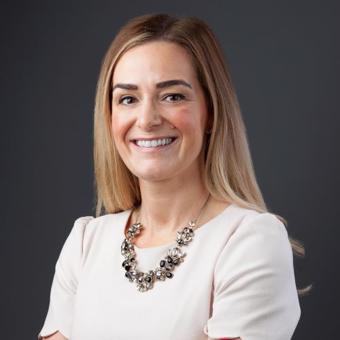Simon Bruce, partner at Dawson Cornwell, tells The Brief about acting in some of the most high-profile family cases to have come before the English Courts, including the ground-breaking 2010 Radmacher v Granatino matter, and why, despite having six reported Supreme Court cases to his name, he believes mediation is preferable to litigation.
Simon Bruce has been described by Chambers as “one of the giants of London family law” and “probably the best male divorce solicitor” currently practising in the capital. He is a past president of the Family Law Commission and the Union Internationale des Avocats.
If you do not already know of him then you almost certainly do know, and may well have studied, a number of his ground-breaking cases, which include Radmacher v Granatino in 2010 and Prest v Petrodel in 2013. Just this year, meanwhile, another of his widely reported matters – a child custody case that hinged on an accusation of unlawful killing – made headlines when it concluded in favour of his client.
Bruce joined Dawson Cornwell as a partner in March 2022, having previously spent his entire legal career with Farrer and Co LLP, where he was head of the family team until he retired as a partner in 2019 and stepped back to dedicate more time to pro bono work.
An Oxford graduate with a degree in French and Classics, he originally joined Farrers as an articled clerk in the mid-1980s. He was articled to senior partner Sir Matthew Farrer K.C.V.O., who served as the Queen’s solicitor from 1965 to 1994, and whom Bruce describes as “without doubt the cleverest lawyer I have ever worked with.”
Sir Matthew, he continues, “taught me a heck of a lot about how to be a lawyer, and he taught me to work very, very hard.” Bruce was admitted as a solicitor in 1986 and has since worked on some of the highest-profile, and highest-value, matrimonial finance cases to come before the courts, both in England and internationally.
Two highlights for the from the earlier part of his career were the reported High Court cases of M v M and H v H. In both of these cases he “robustly asserted the position of wives in long marriages” to bolster those wives’ entitlements.
These cases occurred before the law changed in 2000 to recognise, as a matter of course, the contribution made by the non-working spouses of individuals with demanding careers.
Radmacher v Granatino
In 2010 Bruce acted for the Tetrapak heiress Katrin Radmacher in the Supreme Court. Ms Radmacher argued that a pre-nuptial agreement signed by her and her ex-husband Nicholas Granatino should be taken into consideration when deciding the settlement to which he was entitled.
The Supreme Court judged, eight-to-one, in Ms Radmacher’s favour. The wider effect of this judgment was that marital agreements would henceforth be held to be highly influential in English Court cases.
Bruce says,
The more fundamental point was about bolstering autonomy in family relationships: the ability for spouses to regulate for themselves how they wish to live their marriage without the state interfering in their fair private arrangements.
Another of Bruce’s most notable Supreme Court Cases was Prest v Petrodel in 2013. He explains, “I acted for a wife who was enforcing an £18 million lump sum judgment, in effect, against properties held in trading companies owned by the husband.
The trading companies owned properties in London, and she was able to enforce against those properties.
Prest v Petrodel is, Bruce says, the leading case read by scholars and students in relation to piercing the corporate veil. “That is quite unusual: for a family law case to be the precedent in relation to corporate law, but it is a very important case,” he explains.
Bruce says he is also very proud to have been involved in three Supreme Court children cases, A v A, B v B and G v G, all of which examined the meaning of habitual residence, in some instances involving cases of child abduction. “The reason those cases are significant is that the English Court only has jurisdiction if the child is habitually resident in England,” he explains.
Joining Dawson Cornwell
Dawson Cornwell is a specialist family law firm which is consistently ranked in tier one by Chambers and the Legal 500. Bruce says he was attracted to join the firm by its peerless reputation and commitment to achieving amicable solutions in family matters.
The firm’s founding partner, the late John Cornwell, also founded the Solicitors Family Law Association (now Resolution) in 1983. Around 6,500 solicitors are now members of Resolution.
Bruce says, “John Cornwell mapped the future of family law. His vision for family law took it out of litigation and brought it into a benign way of trying to find appropriate solutions for families, especially where there are children.
Dawson Cornwell is the firm which led the way in terms of how family law should be done in a modern society. And the firm is 50 years old this year – it’s our golden anniversary.
Having joined Dawson Cornwell, Bruce says, “I feel a lot fresher here. It's a new start, and I am working with brilliant young lawyers who are incredibly supportive of the work that we do, who are very friendly and very talented.
“It's a very ambitious firm and it suits my ambitious personality. Most of all, I'm proud of the way in which cases are done in a way to achieve amicable settlements across the board.”
Bruce continues to work on very high value family finance cases, and has maintained an international finance practice which he has developed over the course of his career. He is a fluent French speaker and, he says, “Family lawyers all over the world are my best friends.”
Pro Bono
For the past decade Bruce has increasingly focused on pro bono work, and now divides his time 50:50 between his billable practice at Dawson Cornwell and his various pro bono commitments. “I am a far better lawyer now, having done pro bono, than I was beforehand,” he says.
It has really sharpened my skills and made me a much better lawyer.
Bruce’s pro bono work includes providing advice to clients of the Hammersmith & Fulham Law Centre, the East Greenwich Legal Advice Clinic and the LawWorks online service, Free Legal Answers.
In May 2020 he embarked on his “proudest achievement, by far”, helping to set up Dads House Family Law Clinic in West Brompton, London.
“We act for mothers and fathers, and we are the last chance saloon,” he explains. “These are people who have no money and who cannot get Legal Aid, because it's almost impossible to get Legal Aid in England.
That's not an exaggeration. Even when you are entitled to Legal Aid because of domestic abuse, it is almost impossible to find a lawyer who will take you on.
All of Dads House’s cases involve children. “They may be mothers who are looking to recover abducted children, they may be mothers who are suffering from domestic violence and need to have protective orders from the Court, or they may be fathers who cannot see their children,” Bruce says.
There is one condition attached to the organisation’s services:
We do not act for anyone who has committed domestic violence. We screen our clients incredibly carefully and we do not act for anyone who has committed domestic abuse, that's a principle that we have.
Within less than two years Dads House has already acted in three reported cases. The most recent of these, which was covered widely by the national press earlier this year, saw the Dads House team successfully act in the Family Court for a mother whose former partner was attempting to secure access rights to their child.
The mother accused her ex-partner, a medical doctor, of unlawfully killing her father, and attempting to kill her and her mother, ten years earlier by means of thallium poisoning. The judge in the case, Mr Justice Williams, found in her favour.
The Dads House team currently consists of three lawyers and ten students. “The students help us prepare the cases, go to Court with us and take notes in meetings,” Bruce says.
“We mentor our students and provide a safe place for them to come and learn how to be lawyers, and how to look after clients. It can be very, very difficult for students to get placements now, so I am proud that we are able to provide this opportunity.”
No-fault divorce
While he acknowledges the role of litigation as a backstop, and as a tool to change the law if necessary, Bruce describes it as “blunt, risky, and very costly instrument” and says he always encourages clients to engage in mediation. With this in mind, he sees the recent introduction of “no-fault” divorce proceedings as “a very positive change.”
He says, “The ability to file a joint divorce application, to work with your partner rather than against your partner, is incredibly symbolic. It is a bold and appropriate statement as to how family cases should be done, working with, not working against, the other spouse.”
While no-fault divorce is a positive step, Bruce believes there is another nettle which still needs to be grasped by the profession to make the law really work in the very best interests of families.
He says,
Without doubt the next thing that we're going to be talking about is how to get children cases out of Court. This is the massive question for family law.
“How do we remove children from being an issue for dispute, so that instead they become the subject of discussion? Without any doubt at all the major job for family lawyers and for the family system is enabling children cases to be resolved in a more appropriate way, and that will start with removing children from the from Court situations unless it is necessary as a matter of welfare law.”








